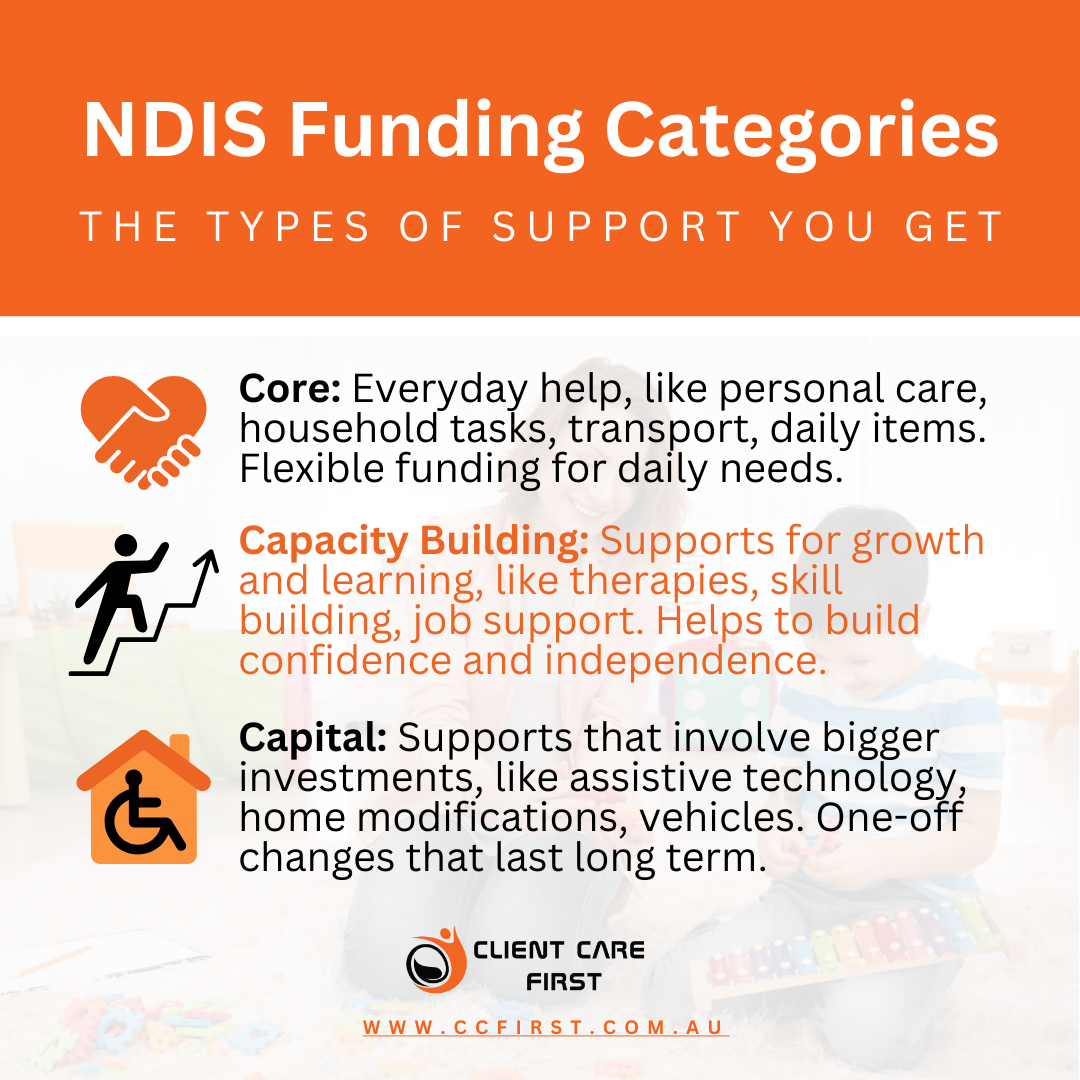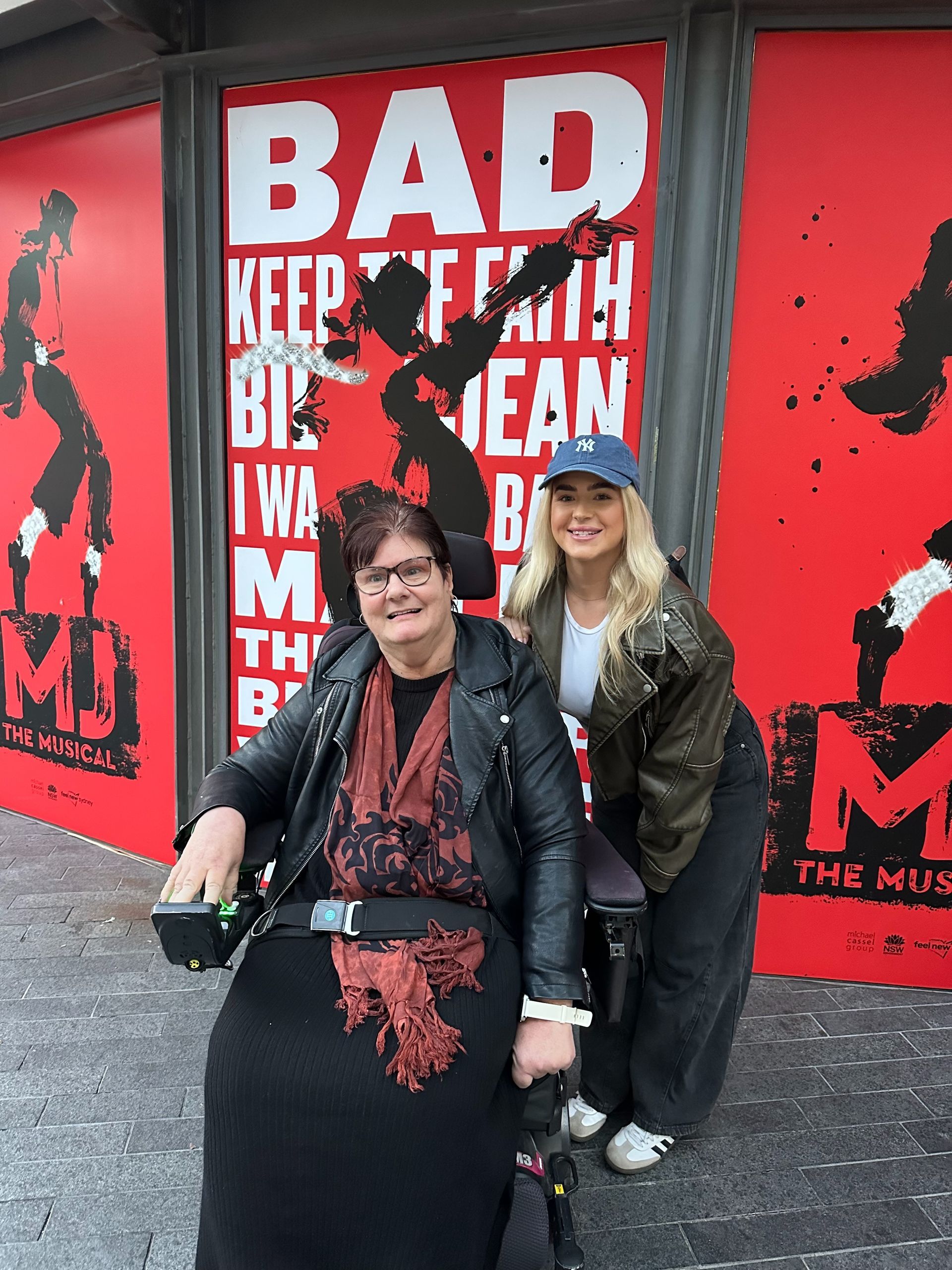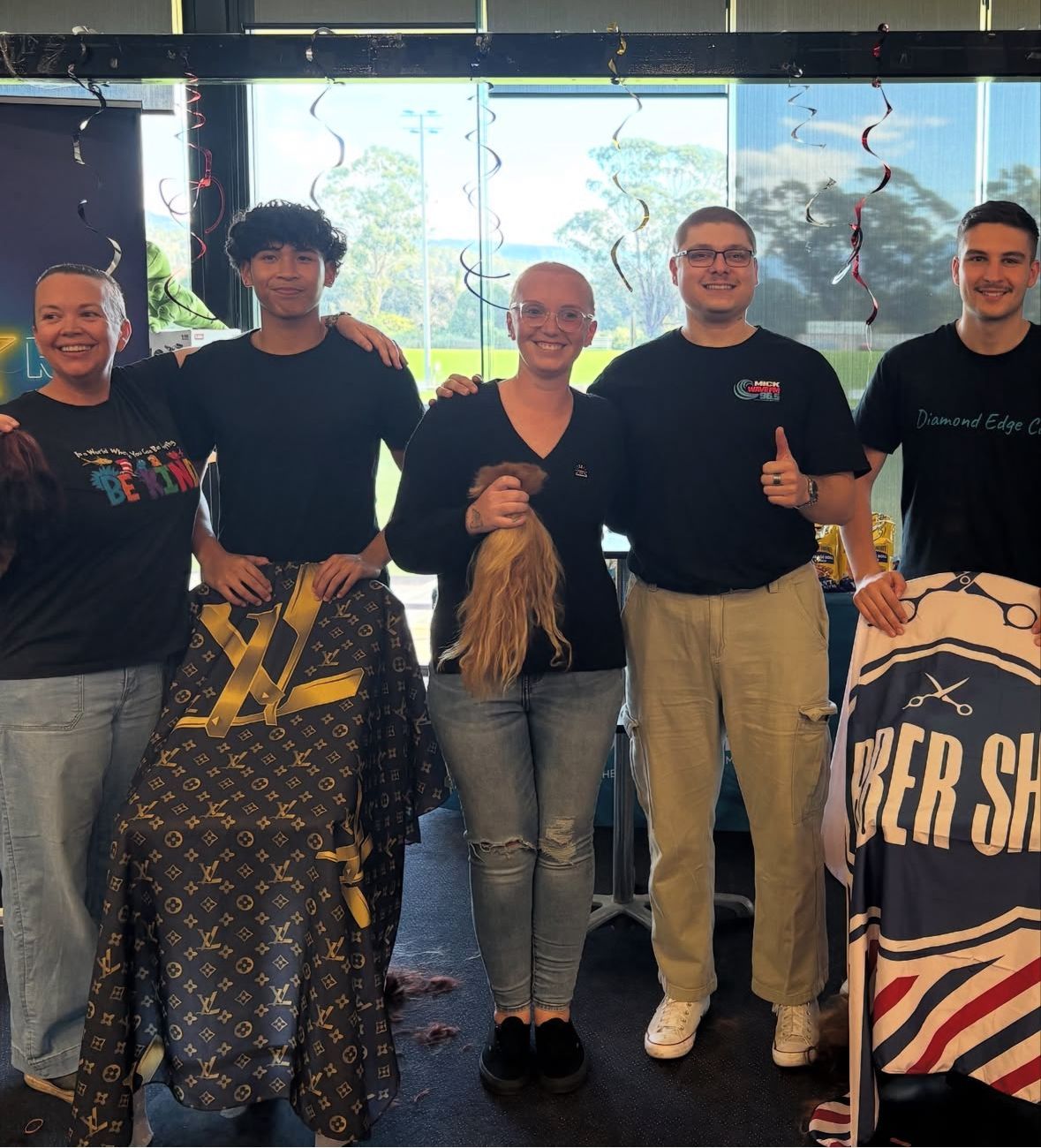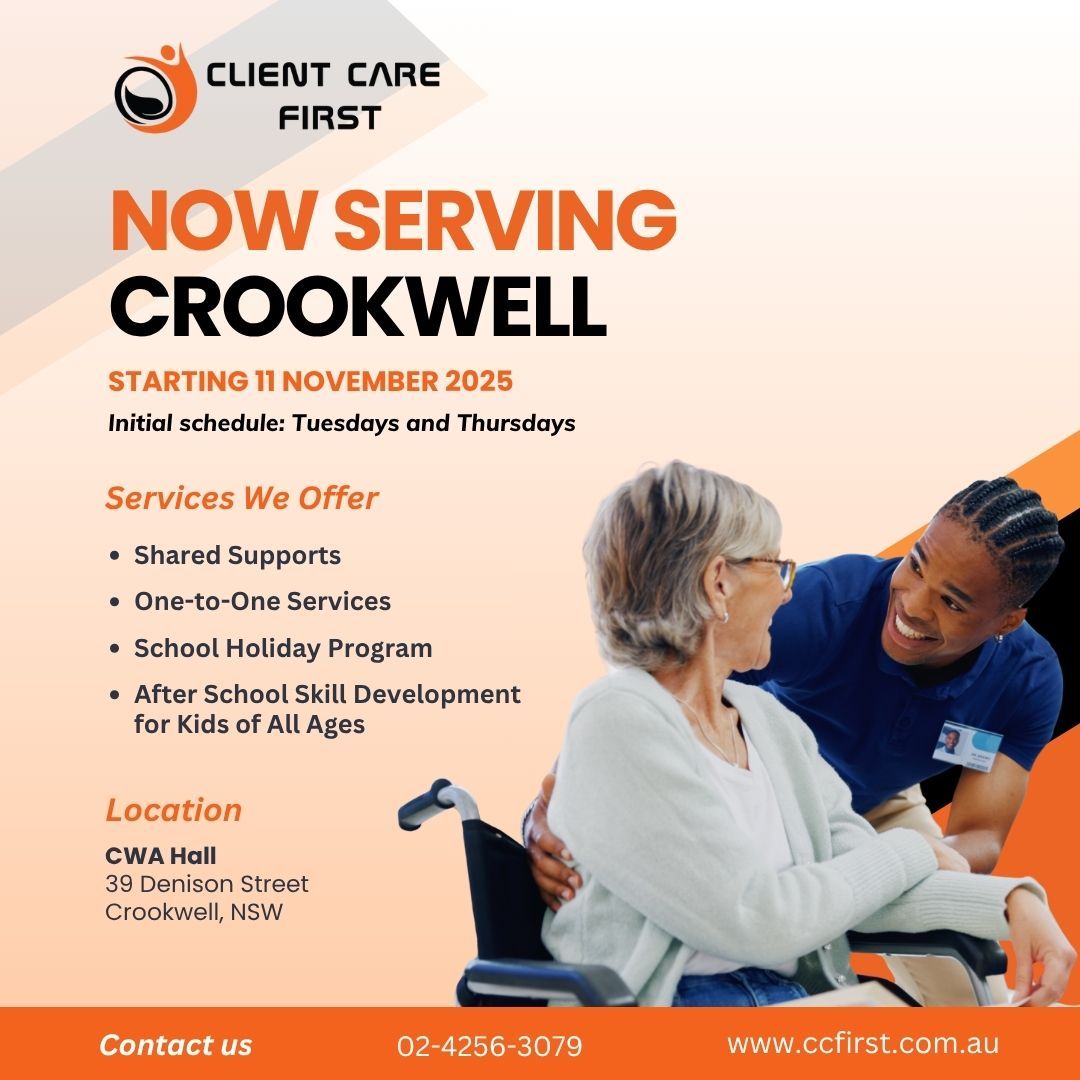Understanding NDIS Funding Categories
A Simple Guide to Your First NDIS Plan and Supports

Starting your NDIS journey can feel overwhelming. There are new words, categories, and processes to learn while you are focusing on what really matters: living life your way. At Client Care First, we are here to make things simpler, clearer, and more caring so you feel supported every step of the way.
The NDIS has three main funding support categories: Core, Capacity Building, and Capital Supports. Each category covers different types of help, and together they provide the flexibility to meet your everyday needs, your future goals, and your bigger investments.
Let’s take a deeper dive.
Core Supports: Everyday Help
Core Supports are about daily living. They cover the essential things that help you get through your day with more comfort and independence.
Examples include:
- Personal care such as bathing or getting dressed
- Help around the home with cleaning, meals, or shopping
- Transport to appointments, activities, or work
- Everyday items like continence products
This category is flexible, which means you can usually move funding between different Core Supports to suit your needs.
Capacity Building Supports: Skills for the Future
Capacity Building is all about growth and learning. These supports focus on building your confidence, independence, and long-term skills.
Examples include:
- Therapy such as physiotherapy, speech therapy, or occupational therapy
- Social and communication skill development
- Training in everyday skills like cooking or using public transport
- Support with employment or managing your NDIS plan
These supports are tailored to your goals, helping you work toward the future you want.
Capital Supports: Bigger Investments
Capital Supports provide funding for items or changes that make a lasting difference. These are usually higher cost supports and need NDIS approval before going ahead.
Examples include:
- Assistive technology like wheelchairs or communication devices
- Home modifications such as ramps, rails, or bathroom adjustments
- Vehicle modifications to make transport safer and more accessible
Capital Supports may not be flexible, but they are designed to create long-term improvements in your quality of life.
Recurring and One-Off Supports
As you use your NDIS plan, you will notice that some supports are recurring, and others are one-off.
- Recurring supports happen regularly, like weekly support worker visits, therapy sessions, or transport assistance. These are common in Core and Capacity Building categories.
- One-off supports are used once or only when needed, such as getting a wheelchair, installing a ramp, or modifying your car. These usually come under Capital Supports.
Understanding this difference can help you plan how to use your funding with confidence.
Key Takeaways
- Core Supports cover your daily needs
- Capacity Building Supports help you grow skills for the future
- Capital Supports provide one-off, larger investments
- Some supports are recurring, others are one-off, and your plan may include a mix of both
How Client Care First Can Support You
As a trusted NDIS provider, Client Care First is here to guide you through your first plan and beyond. We:
- Explain NDIS funding categories in clear, simple terms
- Help you make the most of your Core, Capacity Building, and Capital Supports
- Provide caring support workers who respect your choices and independence
- Walk alongside you as you learn, grow, and build the future you want
With Client Care First, you are not just navigating the NDIS. You are gaining a partner who cares about your journey and your goals.










